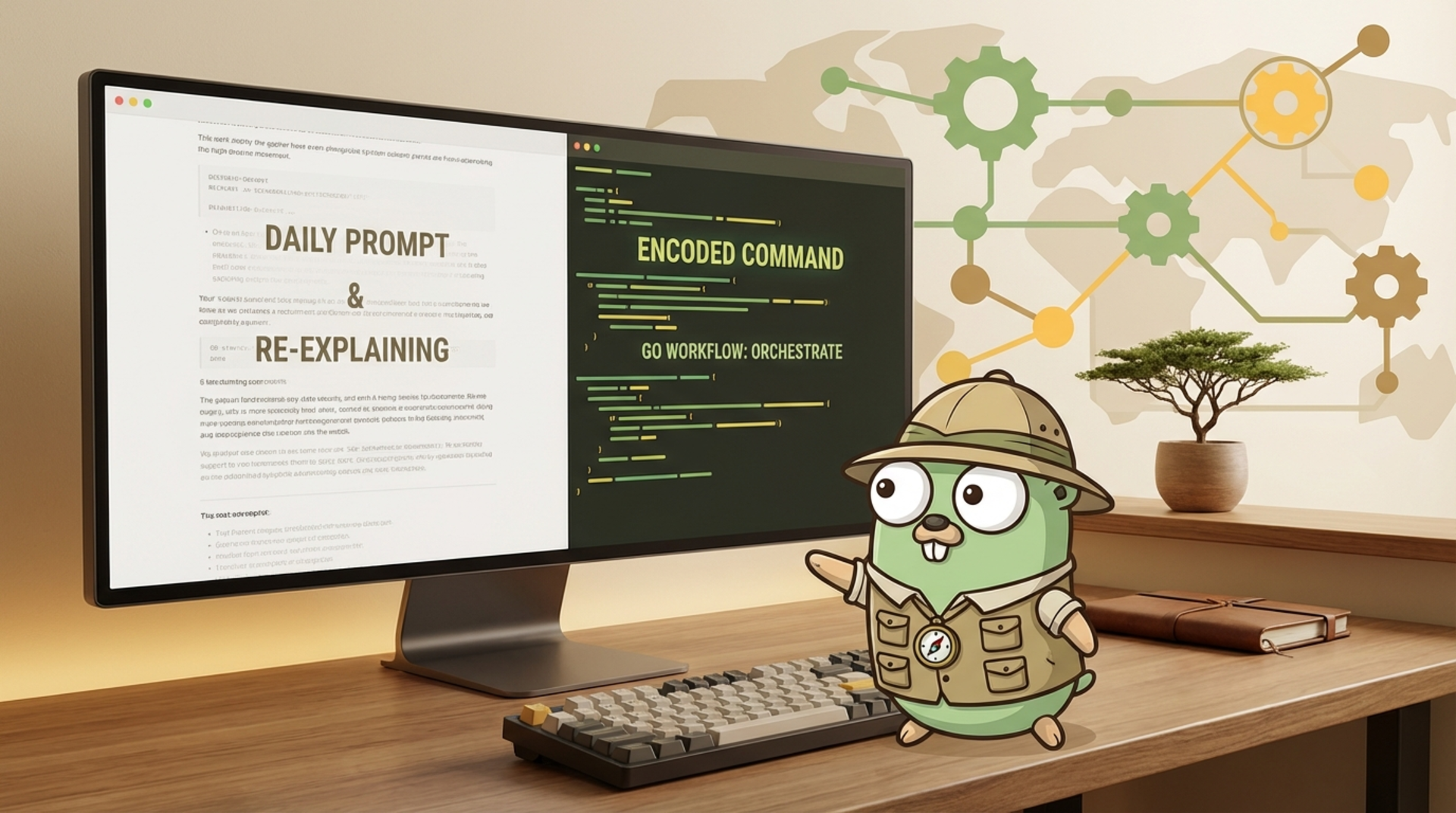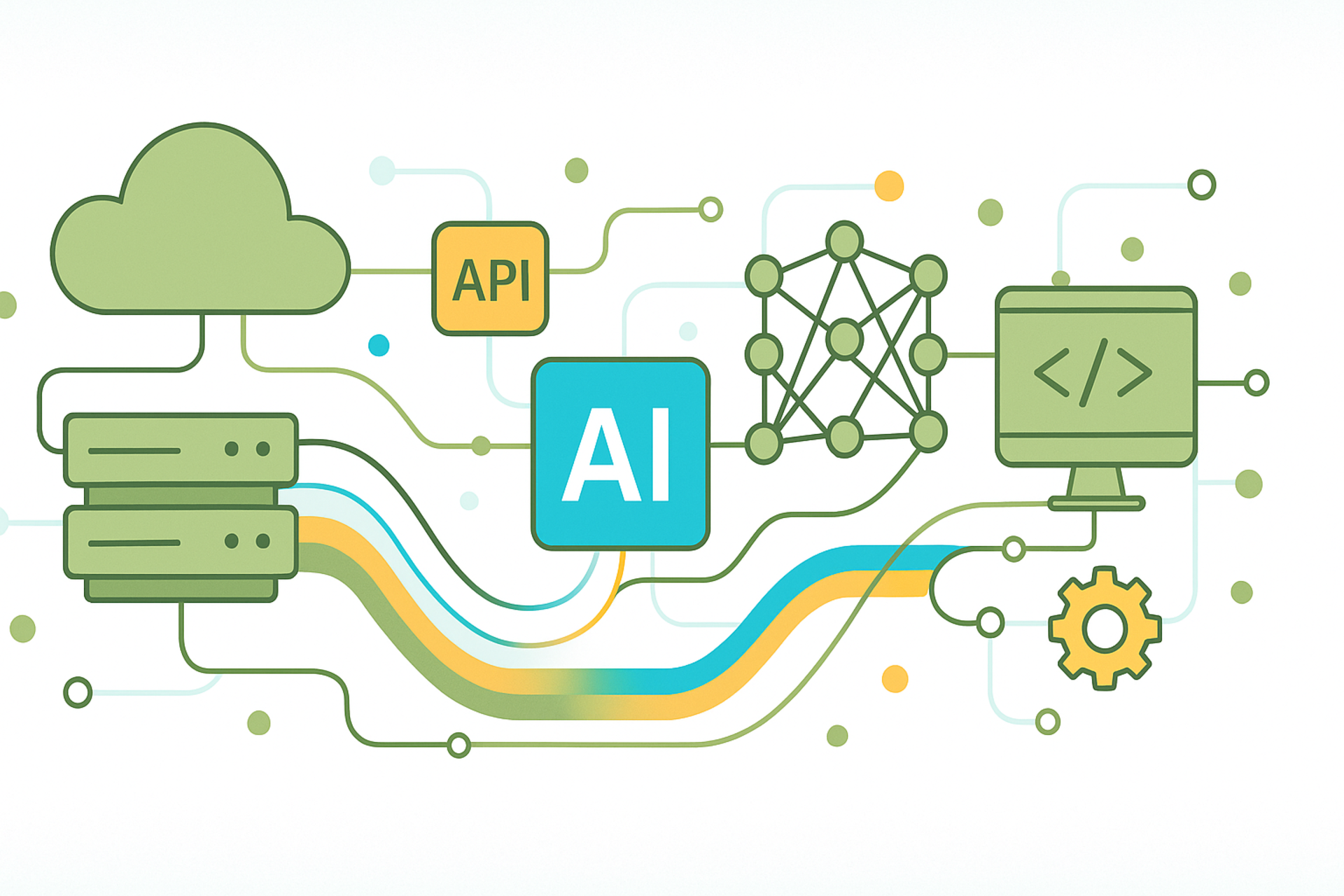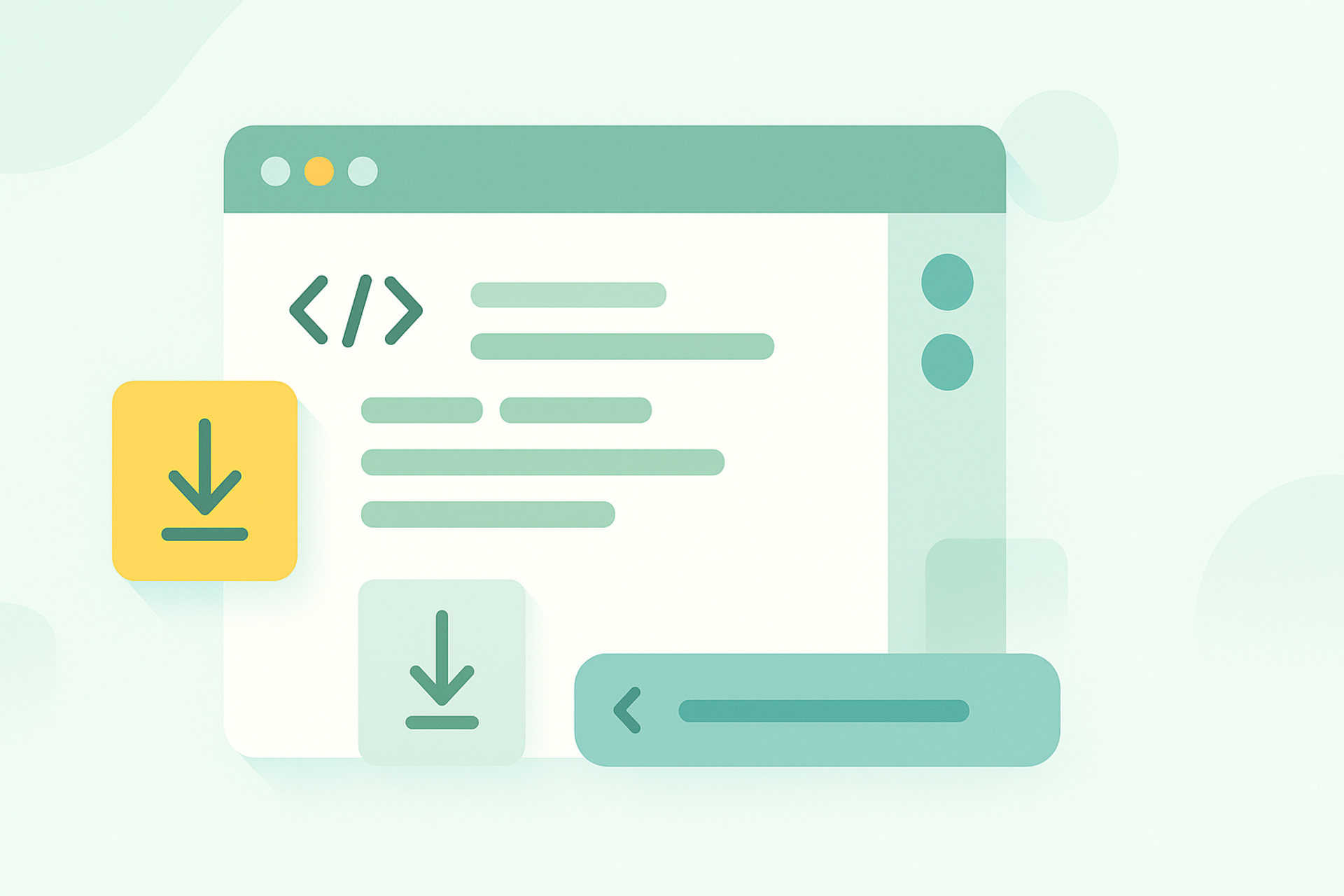The Great AI Lie
When ChatGPT exploded onto the scene in late 2022, the tech world collectively lost its mind. Every thought leader had the same take: coding was democratized. You wouldn't need years of experience anymore. Forget formal training. Just describe what you want in plain English, and AI would build it for you. The era of the citizen developer had arrived.
Two years later, most companies are still so caught up in the AI hype that they've completely forgotten about training. So what am I doing with my time? I'm mastering AI, understanding its strengths and weaknesses, and tailoring my training to teach developers how to use AI properly. With over 30 years of software engineering experience and more than a decade working with Go on enterprise systems, I know what good code looks like. Mark and I have taken all that knowledge and even built it into an MCP server so developers can access real Go expertise directly in their AI assistants. Because AI isn't going away, and it's actually a great tool if you know how to use it.
The key insight I've discovered? AI didn't replace the need for expertise. It amplified the gap between those who have it and those who don't. And now we have the data to prove it.
But first, let me show you exactly what I mean. Watch what happens when a junior developer and a senior developer ask AI to build the same feature.
Junior developer: "Create a view that lists page by page"
Senior developer: "Create a paginated view using templ with the templ-ui component library, use htmx, search the internet for best practices on filters, column sorting, and default page size dropdowns"
The junior gets a functioning page, but it doesn't follow best practices. It's not using the right technology, probably uses vanilla forms and JavaScript, completely ignoring the existing stack. The senior developer gets code that matches the current codebase, uses best practices, is maintainable and refactorable. Same AI, same feature request, completely different results. The difference? The senior developer knows what to ask for. They understand the ecosystem, the tools, the patterns. They can guide the AI toward a real solution instead of accepting whatever generic code it spits out.
This pattern repeats itself thousands of times a day across every development team using AI. And it's why training has become more important, not less.
The Numbers Tell a Different Story
Research published in early 2025 shows something fascinating. Developers using AI assistants are indeed 3-10x more productive than those without. That's not marketing fluff. That's measured output across real projects. But when you dig into those numbers, a pattern emerges that should worry every CTO who thought they could skip training and just hand their team Copilot subscriptions.
Experienced developers with strong fundamentals are seeing the high end of that productivity range. They're using AI to handle the boring stuff: boilerplate code, test case generation, implementing well-defined patterns. They understand what the AI is generating, can spot when it's going off the rails, and know how to course-correct. For them, AI is like having a junior developer who works at the speed of light but needs constant supervision.
Less experienced developers? They're seeing minimal gains, and in many cases, negative productivity. They're spending more time debugging AI-generated code they don't understand than they would have spent writing simpler code themselves. Even worse, they don't know what they don't know, so they're accepting AI suggestions that compile and pass tests but violate fundamental architectural principles.
A paper on software engineering education identified something particularly concerning. AI is automating away the simple tasks that used to serve as training grounds for junior developers. In the past, new developers cut their teeth on straightforward CRUD operations, basic handlers, simple tests. These tasks were boring for senior developers but perfect for learning fundamentals. You'd make mistakes, debug them, understand why things work the way they do.
Now AI handles those tasks instantly. Which sounds great until you realize we've removed the on-ramp to expertise. Junior developers are being asked to work at a higher level of abstraction without having built the foundational understanding that makes that abstraction meaningful. It's like learning to fly by starting in a 747 instead of a Cessna. Sure, the autopilot can handle most of it, but when something goes wrong, you're completely lost.
The Education Market Tells the Real Story
Here's a data point that should make you think: the AI education market is projected to grow from $7.57 billion in 2025 to $112.30 billion by 2034. That's a 15x increase. If AI was truly making training obsolete, why would corporate training budgets be exploding?
Because smart organizations have figured out what's actually happening. AI doesn't replace the need for skilled developers. It amplifies the difference between skilled and unskilled ones. And training is how you move people from the second category to the first.
The research calls this the "skills paradox," and it's playing out exactly as you'd expect. AI makes experts more expert, allowing senior developers to offload tedious work and focus on architecture, design, and complex problem-solving. Meanwhile, AI makes novices more dependent, using it as a crutch instead of building the mental models needed to work independently. The gap between these two groups isn't shrinking; it's becoming a chasm.
One study found that teams with structured training in AI-assisted development saw 3x better adoption rates and outcomes than teams who just gave developers AI tools and said "figure it out." That's not a small difference. That's the difference between success and failure.
What I'm Seeing in the Trenches
The research aligns perfectly with what I've witnessed over the last two years working with Go teams. When ChatGPT and Copilot first launched in early 2023, my phone stopped ringing. CTOs figured they could skip training and just give developers AI tools. Why pay for a week of training when the AI can answer any question instantly?
Even now in 2024, most companies are still riding the AI hype train, convinced that tools alone will solve their problems. The few forward-thinking companies that do call me aren't asking for basic Go training anymore. They want to understand how to use AI effectively. They've realized their teams are generating tons of code but not getting the results they expected.
Here's the pattern I see over and over: A team adopts AI tools. Velocity shoots up. Features ship faster than ever. Management is thrilled. Six months later, everything starts falling apart. The code isn't idiomatic. It works, but it's written like Java developers trying to write Go, because that's what the AI learned from internet examples. Nobody understands the architecture because developers implemented AI suggestions without understanding the tradeoffs. When something breaks, debugging is a nightmare because no one actually knows how the system works under the hood.
Performance problems emerge that no one saw coming. The AI generated "safe" code that's massively over-engineered. Channels everywhere when simple mutexes would do. Goroutines spawned for operations that should be synchronous. Interfaces defined next to their implementations because that's how Java does it. Pointer receivers on everything "for efficiency" even when it makes no sense.
And then there's onboarding. New developers join the team and can't make heads or tails of the codebase. There's no consistent pattern, no clear architecture, just thousands of lines of AI-generated code that technically works but makes no coherent sense as a system.
The Uncomfortable Truth About AI Training Data
Here's what people don't want to acknowledge: AI coding assistants learn from code on the internet. And let's be honest, most code on the internet is terrible. It's not malicious; it's just mediocre. It's developers learning new languages and applying patterns from their old ones. It's Stack Overflow answers that solve the immediate problem but create three new ones. It's tutorial code that was never meant for production.
The AI isn't failing when it reproduces these patterns. It's working exactly as designed. It learned from bad examples. Here's the real kicker: when AI was trained on Go code, most of what's out there is garbage. Truly. It doesn't follow proper idioms, it's over-engineered, it's developers from other languages forcing their patterns onto Go. So when the AI encountered codebases from Uber or HashiCorp that actually follow Go best practices, it treated those as outliers, not as the authority. The AI never really learned Go at all.
I can't tell you how many times I have to correct AI when it creates a min function from scratch, completely unaware that it's been a built-in function since Go 1.21. Or when it builds a semaphore from scratch instead of using the one in the experimental sync package. It suggests complex inheritance hierarchies rebuilt with embedded structs, channels used where they make no sense, and error handling that would make any Go veteran cringe. These aren't bugs in the AI. These are features, learned from thousands of repositories where developers who never properly learned Go uploaded their experiments.
Without training to recognize these anti-patterns, developers accept AI's suggestions as gospel. After all, the code compiles. Tests pass. Features ship. The problems don't surface until months later when the technical debt compounds into a crisis.
The New Developer Spectrum
After two years of watching teams navigate this new world, I've noticed developers fall into distinct categories based on how AI impacts their work.
Expert developers with 10+ years of experience and rock-solid fundamentals see massive benefits. AI handles their tedious work while they focus on what matters. They catch AI's mistakes immediately, understand the tradeoffs in every suggestion, and use it as a true force multiplier. These developers really are 5-10x more productive with AI.
Solid mid-level developers with decent fundamentals but gaps in their knowledge see positive but risky results. They're more productive on familiar problems but can get into trouble when AI suggests patterns they don't fully understand. They don't always catch AI's subtle mistakes, and sometimes they don't even know to look for them. With proper training, these developers can move toward expert-level AI usage. Without it, they plateau or even regress.
Junior developers with weak fundamentals face the biggest challenges. They might be faster at generating code initially, but they're much slower at debugging when things go wrong. Instead of building mental models of how systems work, they build a dependency on AI to tell them what to do next. Without training, they get stuck at a low skill level, never developing the expertise needed to advance. But here's the thing: with proper training first, before they become dependent on AI, they can actually leapfrog ahead of where previous generations of junior developers would have been.
Then there are non-developers with no programming background who've been told AI will let them build software. For them, AI appears magical at first. They can generate working code for simple projects, and suddenly they think they're developers. But they hit walls fast. They can't debug when something breaks. They can't optimize when performance tanks. They can't maintain what they've built. AI gives them just enough capability to get into serious trouble.
The pattern is clear: AI amplifies what you already know. It doesn't teach you what you don't know.
Why Smart Companies Will Eventually Wake Up to Training
Most companies still think "AI will reduce our training needs." They're wrong, and the smart ones are starting to figure it out. They need training more than ever, just different kinds of training. This is exactly why I've been investing my time in mastering AI and understanding how to integrate it into effective training programs. It's why Mark and I built our MCP server, packaging decades of Go expertise into a tool that helps AI give better answers. We're not fighting AI; we're making it actually useful by giving it access to real expertise.
Traditional foundational training has become more critical, not less. Before developers can effectively use AI to write Go, they need to understand Go well enough to evaluate what AI suggests. They need to know idiomatic patterns, understand performance implications, recognize security vulnerabilities. Companies are learning the hard way that you can't skip this step.
But now there are entirely new training needs. Teams need to learn how to work effectively with AI. Not just which buttons to push, but how to write effective prompts, when to trust suggestions and when to be skeptical, how to quickly validate AI-generated code, and how to maintain quality standards when velocity increases. This is completely new territory that didn't exist three years ago.
There's also the critical skill of reviewing AI-generated code. It's different from reviewing human-written code. The patterns of mistakes are different. The anti-patterns are different. Teams need to learn to spot the specific ways AI tends to go wrong, the subtle bugs it introduces, the architectural decisions it makes that seem reasonable in isolation but create problems at scale.
Organizations that invest in all three types of training (foundational, AI-assisted development, and AI-code review) see sustainable productivity gains. Organizations that skip training see short-term velocity bumps followed by quality cliffs that take months to recover from.
The 2025 Reality Check
The data backs up everything I'm seeing in the field. 57% of higher education institutions are prioritizing AI in their 2025 curriculum, up from 49% in 2024. They're not replacing programming courses with prompt engineering. They're teaching students to be better developers who can leverage AI effectively.
Nearly 50% of instructional designers use AI daily, but they're using it to design better training, not to eliminate training. Companies are indeed saving millions on training costs through AI, but they're doing it by making training more efficient and personalized, not by eliminating it. The fastest-growing segment in EdTech isn't "AI that teaches you to code." It's AI-powered personalized learning that helps developers build expertise faster.
The question isn't "will AI replace developers?" We've answered that. Obviously not. The real question is "what kind of developers will thrive in an AI-assisted world?" And the answer is clear: developers with strong fundamentals who know how to leverage AI as a force multiplier. Training creates those developers. AI tools alone do not.
What This Means for Your Team
If you're leading a development team in 2025, here's my advice based on two years of watching teams succeed and fail with AI.
First, invest in fundamentals before you invest in AI tools. Don't give junior developers Copilot subscriptions and expect them to magically become productive. Train them in core concepts, idiomatic patterns, system design. Build their expertise, then layer in AI as an accelerator. The order matters more than you think.
Second, don't assume developers will figure out how to use AI effectively on their own. The teams seeing 3x better results aren't just smarter. They're getting structured training on AI-assisted workflows. They're learning prompt patterns that work, validation strategies that catch AI mistakes, and review processes that maintain quality even as velocity increases.
Third, maintain high standards for code review, especially for AI-generated code. Velocity without quality is just technical debt you haven't paid yet. As AI enables teams to generate more code faster, code review becomes more critical, not less. Train your reviewers to spot AI anti-patterns, to question architectural decisions, to ensure that faster doesn't mean sloppier.
Finally, measure real productivity, not vanity metrics. Lines of code written per day means nothing if that code becomes unmaintainable six months later. Sustainable, maintainable, debuggable systems delivered over time. That's what matters. AI can help with velocity; training is essential for sustainability.
The Strategic Advantage Nobody's Talking About
Here's what's really happening: AI is making mediocre developers slightly faster at producing mediocre code. But it's making well-trained developers incredibly productive at building excellent systems. The gap between these two groups is widening every day.
Companies that understand this aren't cutting their training budgets. They're increasing them, but changing how they allocate them. They're not sending everyone to generic coding bootcamps. They're investing in deep expertise training, AI-assisted development training, and the critical thinking skills needed to evaluate AI suggestions.
The organizations figuring this out now will have a massive advantage over those who think they can skip fundamentals and let AI handle everything. They'll ship faster, with higher quality, and lower technical debt. Their developers will grow and improve rather than becoming dependent on tools they don't understand.
Don't be the company that discovers this after you're drowning in technical debt. Don't be the team that has to explain to stakeholders why the codebase that was supposed to be "AI-accelerated" has become an unmaintainable mess. Invest in training now, while you still have a choice, before it becomes a crisis.
The AI education market is exploding not because AI has made training obsolete, but because training has become the key to unlocking AI's potential. The paradox is real: the more powerful our tools become, the more important expertise becomes. AI isn't replacing the need for skilled developers. It's making skilled developers more valuable than ever.
And training is how you create them.
Further Reading: The Research Behind This Article
This article synthesizes insights from multiple 2024-2025 studies and analyses. If you want to dive deeper, here are the key sources:
"How AI Will Impact Software Development in 2025 and Beyond" (Dice.com)
https://www.dice.com/career-advice/how-ai-will-impact-software-development-in-2025-and-beyond
Key insight: Developers becoming AI trainers as much as coders; 76% using or planning to use AI tools
"How AI Is Shaping the Future of Corporate Training in 2025" (Training Industry)
https://trainingindustry.com/articles/artificial-intelligence/how-ai-is-shaping-the-future-of-corporate-training-in-2025/
Key insight: One-size-fits-all training is dead; AI enables hyper-personalization but doesn't eliminate the need for training
"Software engineering education in the era of conversational AI" (PMC/NIH)
https://pmc.ncbi.nlm.nih.gov/articles/PMC11391529/
Key insight: Junior developers struggle because AI automates the simple tasks that used to serve as training grounds
"How AI Is Transforming Training And Development In 2025" (Groove Technology)
https://groovetechnology.com/blog/software-development/ai-for-training-and-development/
Key insight: Nearly 50% of instructional designers use AI daily; organizations saving millions on training through AI-enhanced delivery
"How AI Is Transforming Personalized Learning In 2025 And Beyond" (eLearning Industry)
https://elearningindustry.com/how-ai-is-transforming-personalized-learning-in-2025-and-beyond
Key insight: AI education market growing from $7.57B (2025) to $112.30B (2034); 57% of institutions prioritizing AI
"AI Trends Transforming Online Education in 2025" (Medium/API4AI)
https://medium.com/@API4AI/top-ai-trends-shaping-online-education-in-2025-74c70f957e29
Key insight: 64% of institutions using predictive AI; immersive AR/VR technologies revolutionizing hands-on learning
"The Roadmap for Mastering AI-Assisted Coding in 2025" (Machine Learning Mastery)
https://machinelearningmastery.com/the-roadmap-for-mastering-ai-assisted-coding-in-2025/
Key insight: Teams with structured prompt engineering education see 3x better adoption rates
"AI for Coding: Why Most Developers Get It Wrong" (KSRED)
https://www.ksred.com/ai-for-coding-why-most-developers-are-getting-it-wrong-and-how-to-get-it-right/
Key insight: AI can widen learning gaps for beginners; critical thinking needed to evaluate suggestions




